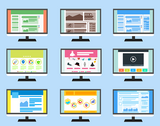
Financial literacy - CashOnHand - Deductions - Brandon - ASL/English
- Subject:
- Business and Communication
- Education
- Finance
- Special Education
- Material Type:
- Lesson
- Date Added:
- 02/08/2021

Financial literacy - CashOnHand - Deductions - Brandon - ASL/English

Financial literacy - CashOnHand - Deductions - Brandon - ASL/Spanish

CashOnHand - Food - Elena - English

CashOnHand - Food - Elena - Spanish

Financial literacy - CashOnHand - Income - Alina - ASL/English

Financial literacy - CashOnHand - Income - Alina - ASL/Spanish

Financial literacy - CashOnHand - Needs vs Wants - Don - ASL/English

Financial literacy - CashOnHand - Needs vs Wants - Don - ASL/Spanish

CashOnHand - Summary - Seth - English

CashOnHand - Summary - Seth - Spanish

CashOnHand - Transportation - Brandon - English

CashOnHand - Transportation - Brandon - Spanish
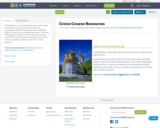
In Washington, a stand-alone high school civics course is required by a new state law.
A statewide sub-committee of OSPI's Social Studies Cadre and Walter Parker, Professor of Social Studies Education, University of Washington, drafted this list of resources in hopes that it will be useful to schools needing to create such a course or update an existing course. It is a work-in-progress.
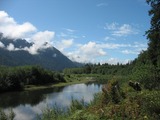
In their continued support of climate science education, the Washington State Office of Superintendent of Public Instruction (OSPI) created these resources to support K-12 teachers of all content areas integrate climate science and climate change into their instruction.

The Washington State Legislature has invested $16 million in climate science education since 2018. This portal contains links to professional learning resources and instructional materials developed by the ClimeTime network of educational partners who came together as a result of this funding. ClimeTime partners provide climate science professional learning to Washington science teachers, using innovative strategies and effective practices. Many projects also create instructional materials aligned with the Next Generation Science Standards, to support student climate science learning.
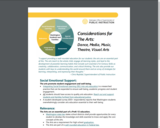
The document provides overview information about the importance of arts education and its implementation in K12 schools.
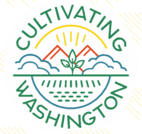
The Cultivating Washington curriculum is intended to be a go-to resource for Washington state middle school educators seeking student-centered instructional materials that make learning about the history of the Pacific Northwest more relevant and meaningful for students.In addition, it is a resource for agricultural education teachers, parents, and community members interested in helping students discover the history and development of agriculture in the state of Washington.
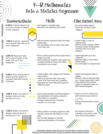
This resource was created by the Washington Office of Superintendent of Public Instruction.
The information revolution of the 21st century is as significant and transformative as the industrial revolution of the 19th century. In this unit, students – and by proxy their families – will learn about the challenges of our current information landscape and how to navigate them. This unit is split into four modules. These modules can be done sequentially or stand on their own, depending on students’ needs and teachers’ timeframes. In this module (1 of 4), students analyze their own use of online social media platforms and learn how filter bubbles and confirmation bias shape the content of their media environment.
